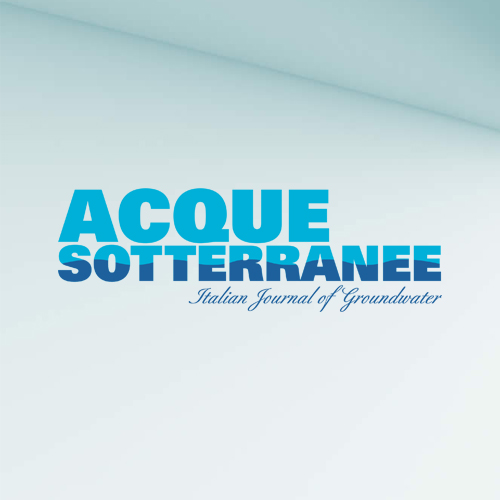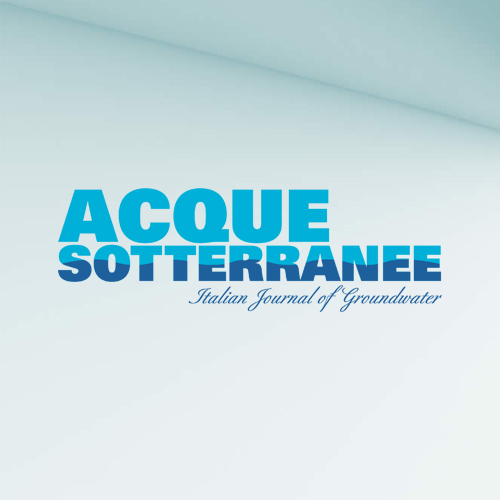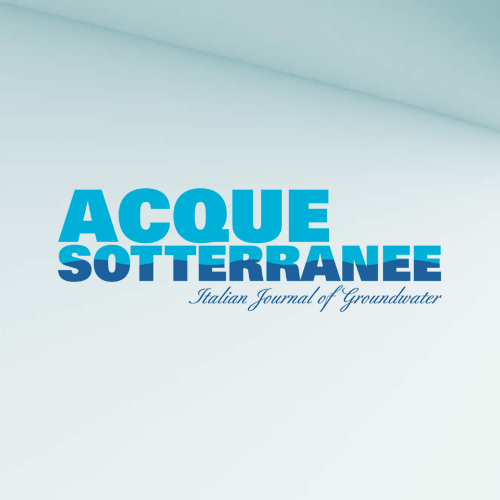A methodology for the preliminary characterisation of the river boundary condition in finite difference groundwater flow numerical models

Submitted: 28 August 2019
Accepted: 12 September 2019
Published: 30 September 2019
Accepted: 12 September 2019
Abstract Views: 1068
PDF: 502
Publisher's note
All claims expressed in this article are solely those of the authors and do not necessarily represent those of their affiliated organizations, or those of the publisher, the editors and the reviewers. Any product that may be evaluated in this article or claim that may be made by its manufacturer is not guaranteed or endorsed by the publisher.
All claims expressed in this article are solely those of the authors and do not necessarily represent those of their affiliated organizations, or those of the publisher, the editors and the reviewers. Any product that may be evaluated in this article or claim that may be made by its manufacturer is not guaranteed or endorsed by the publisher.
Similar Articles
- Luca Vettorello, Roberto Pedron, Andrea Sottani, Michele Chieco, Heat exchange modeling in a multilayered karst aquifer affected by seawater intrusion , Acque Sotterranee - Italian Journal of Groundwater: Vol. 4 No. 3 (2015)
- Alessio Fileccia, Some simple procedures for the calculation of the influence radius and well head protection areas (theoretical approach and a field case for a water table aquifer in an alluvial plain) , Acque Sotterranee - Italian Journal of Groundwater: Vol. 4 No. 3 (2015)
- Luca Alberti, Model calibration using the automatic parameter estimation procedure (PEST) of the North-eastern zone of the Milan Functional Urban Area (Italy) , Acque Sotterranee - Italian Journal of Groundwater: Vol. 7 No. 2 (2018)
- Eleonora Frollini, Methodological approach for the estimation of recoverable LNAPL volumes in aquifer and for the analysis of residual phase behaviour in laboratory , Acque Sotterranee - Italian Journal of Groundwater: Vol. 6 No. 4 (2017)
- Francesca Lotti, John Doherty, The role of numerical models in environmental decision-making , Acque Sotterranee - Italian Journal of Groundwater: Vol. 5 No. 3 (2016)
- Pamela Teoli, Roberto Mazza, Alessandro Cappelli, Lepini Mountains Carbonatic Ridge: try of springs recharge areas verification and water exchange quantification with Pontina Plain by use of a numerical model (Central Italy) , Acque Sotterranee - Italian Journal of Groundwater: Vol. 3 No. 1 (2014)
- Giovanna De Filippis, Mauro Giudici, Stefano Margiotta, Fiorella Mazzone, Sergio Negrini, Chiara Vassena, Numerical modeling of the groundwater flow in the fractured and karst aquifer of the Salento peninsula (Southern Italy) , Acque Sotterranee - Italian Journal of Groundwater: Vol. 2 No. 1 (2013)
- Irena Kopa?, Matevž Vremec, Slovenian test case Vrbanski Plato aquifer in the EU HORIZON 2020 FREEWAT project , Acque Sotterranee - Italian Journal of Groundwater: Vol. 6 No. 3 (2017)
- Valentina Vincenzi, Leonardo Piccinini, Alessandro Gargini, Michele Sapigni, Parametric and numerical modeling tools to forecast hydrogeological impacts of a tunnel , Acque Sotterranee - Italian Journal of Groundwater: Vol. 11 No. 1 (2022)
- Ezio Crestaz, Michele Pellegrini, Peter Schätzl, Tight-coupling of groundwater flow and transport modelling engines with spatial databases and GIS technology: a new approach integrating Feflow and ArcGIS , Acque Sotterranee - Italian Journal of Groundwater: Vol. 1 No. 2 (2012)
<< < 1 2 3 4 5 6 7 8 9 10 > >>
You may also start an advanced similarity search for this article.


 https://doi.org/10.7343/as-2019-400
https://doi.org/10.7343/as-2019-400










